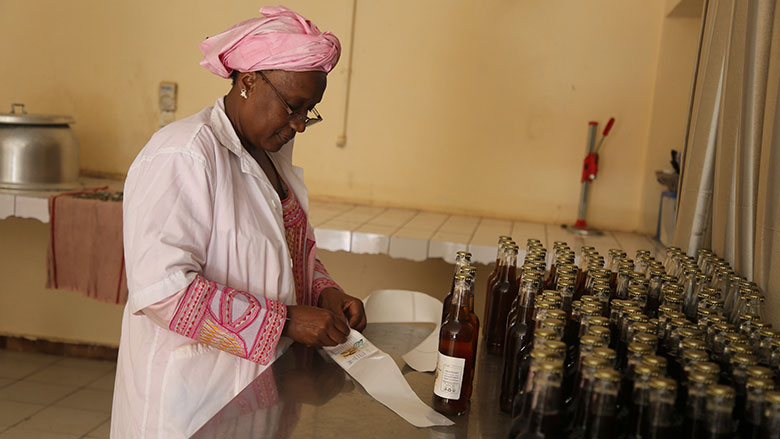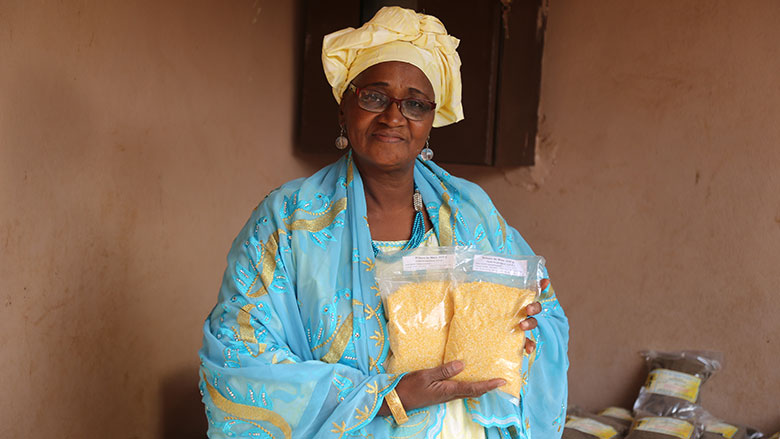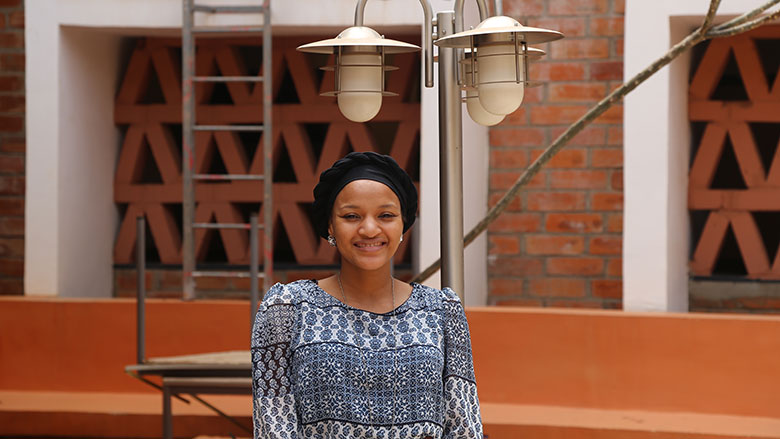Sow Ada Bocoum
After working for 29 years in the banking sector, Sow Ada Bocoum decided to go into the local fruit processing business in 2015. She launched Dickel Production, which now sells fruit juices to several establishments in Bamako.
“It all started during a trip to Mecca where I drank an absolutely delicious mango juice, much better than the juices that I usually had in Mali,” she explains. Her foray into the production of natural juices with no artificial coloring therefore began as a challenge.
Thanks to the financing she received from the Agricultural Competitiveness and Diversification Project (ACDP), she was able to purchase 10,000 glass bottles, as well as machines and refrigerators.
To ensure her products stood out, she also invested in labels bearing a unique logo to personalize her brand. A year later in January 2016, she hired five staff and launched the production of nine juice flavors, a number of which were very exotic: papaya, mango, hibiscus flower (bissap), baobab fruit, ginger, guava, wild passion flower (pomme liana), palmyra, and tamarind.
“Once a month, I go shopping in Bamako to select the best fruits and ingredients. Right now I am doing this on a small scale and am offering my juices in restaurants and hotels because I have to retrieve my reusable bottles. My training has helped me to provide products of impeccable quality that are in compliance with international standards and can be exported in the future, especially to the United States. I dream of being able to purchase an automatic crusher and a capping machine in the future, so that I can develop a real production line. I also want for my company to become a green business model by using renewable energy sources and recycled products. It is true that this began as a challenge but now I want to train young people and contribute to Mali’s development.”



